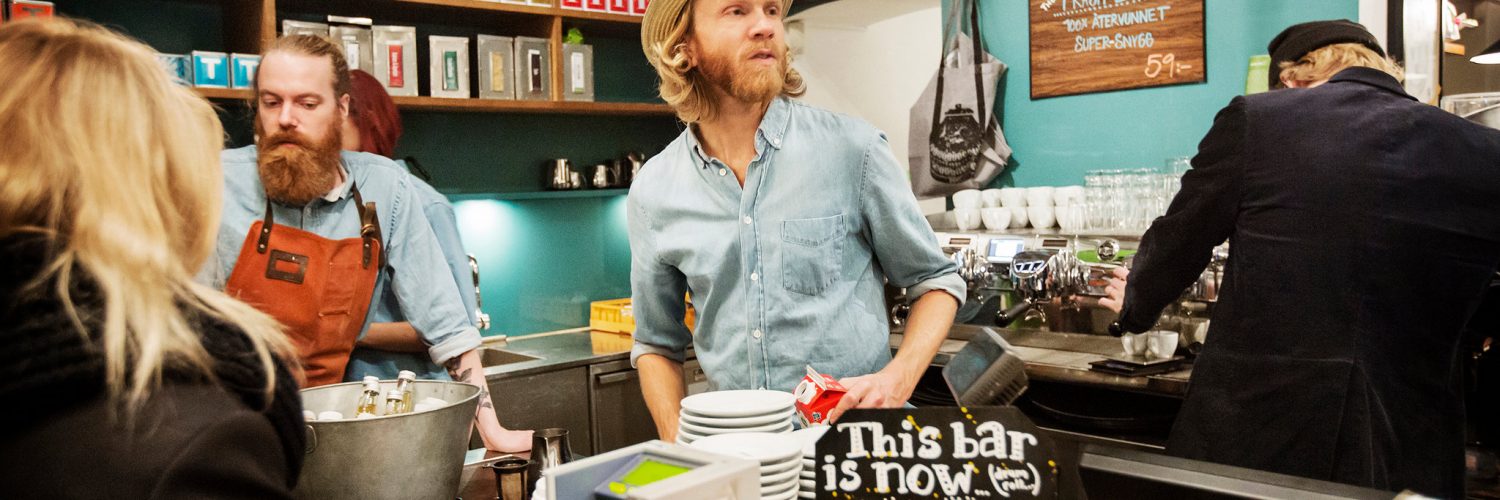“More than 4,000 Swedes have gone the microchip route as cash use fades and the government scrambles to figure out the effects on society and the economy”
Also watch video : In a cashless society, ‘the chip will replace YOU!’
Thousands of Swedes have been microchipped to allow them to conveniently pay for goods and services without cash, credit card or smartphone. Now, Swedish companies are asking their employees to accept such implants to aid in identification and security clearance. Lionel of Lionel Media sees the ominous trend as “the mark of the beast” and yet more evidence that “we’ve lost all sense of freedom.” RT America , Published on Nov 27, 2018
The New York Times
Liz Alderman
FINANCIAL POST
November 23, 2018 6:30 AM EST
In Sweden, cash is almost extinct and people implant microchips in their hands to pay for things
More than 4,000 Swedes have gone the microchip route as cash use fades and the government scrambles to figure out the effects on society and the economy

A cafe in Stockhlom that is completely cash-free. Few places are tilting toward a cashless future as quickly as Sweden, which has become hooked on the convenience of paying by app and plastic.Linus Sundahi-Djerf/The New York Times
Few countries have been moving toward a cashless society as fast as Sweden. But cash is being squeezed out so quickly — with half the nation’s retailers predicting they will stop accepting bills before 2025 — that the government is recalculating the societal costs of a cash-free future.
The financial authorities, who once embraced the trend, are asking banks to keep peddling notes and coins until the government can figure out what going cash-free means for young and old consumers. The central bank, which predicts cash may fade from Sweden, is testing a digital currency — an e-krona — to keep firm control of the money supply. Lawmakers are exploring the fate of online payments and bank accounts if an electrical grid fails or servers are thwarted by power failures, hackers or even war.
“When you are where we are, it would be wrong to sit back with our arms crossed, doing nothing, and then just take note of the fact that cash has disappeared,” said Stefan Ingves, governor of Sweden’s central bank, known as the Riksbank. “You can’t turn back time, but you do have to find a way to deal with change.”
Ask most people in Sweden how often they pay with cash and the answer is “almost never.” A fifth of Swedes, in a country of 10 million people, do not use automated teller machines anymore. More than 4,000 Swedes have implanted microchips in their hands, allowing them to pay for rail travel and food, or enter keyless offices, with a wave. Restaurants, buses, parking lots and even pay toilets depend on clicks rather than cash.
Consumer groups say the shift leaves many retirees — a third of all Swedes are 55 or older — as well as some immigrants and people with disabilities at a disadvantage. They cannot easily gain access to electronic means for some goods and transactions, and rely on banks and their customer service. And the progress toward a cashless society could upend the state’s centuries-old role as sovereign guarantor. If cash disappears, commercial banks would wield greater control.
“We need to pause and think about whether this is good or bad, and not just sit back and let it happen,” said Mats Dillén, the head of a Swedish Parliament committee studying the matter. “If cash disappears, that would be a big change, with major implications for society and the economy.”
Urban consumers worldwide are increasingly paying with apps and plastic. In China and in other Asian countries rife with young smartphone users, mobile payments are routine. In Europe, about one in five people say they rarely carry money. In Belgium, Denmark and Norway, debit and credit card use has hit record highs.











